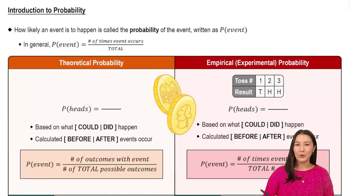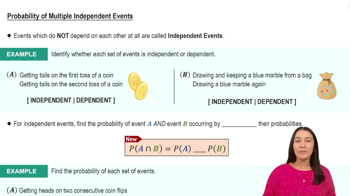ATM You want to obtain cash by using an ATM, but it’s dark and you can’t see your card when you insert it. The card must be inserted with the front side up and the printing configured so that the beginning of your name enters first.
c. How many random selections are required to be absolutely sure that the card works because it is inserted correctly?





